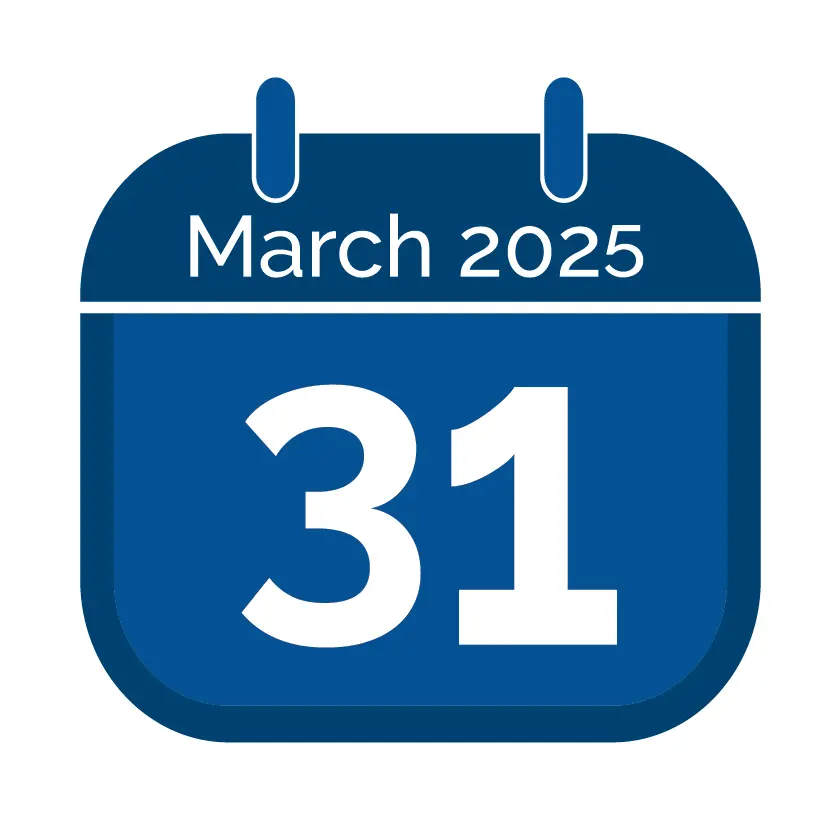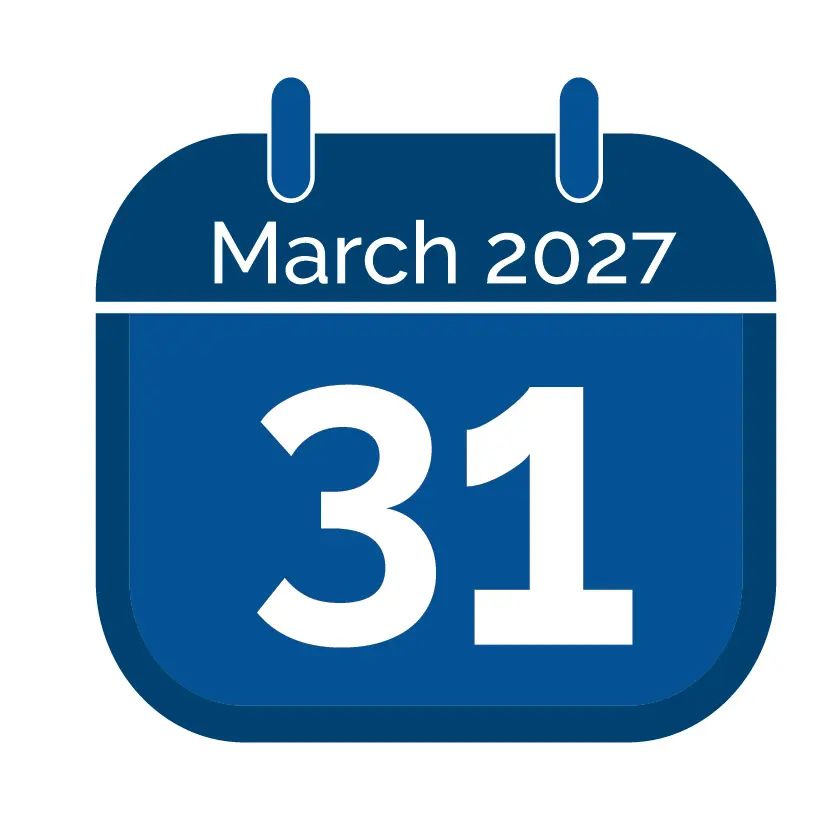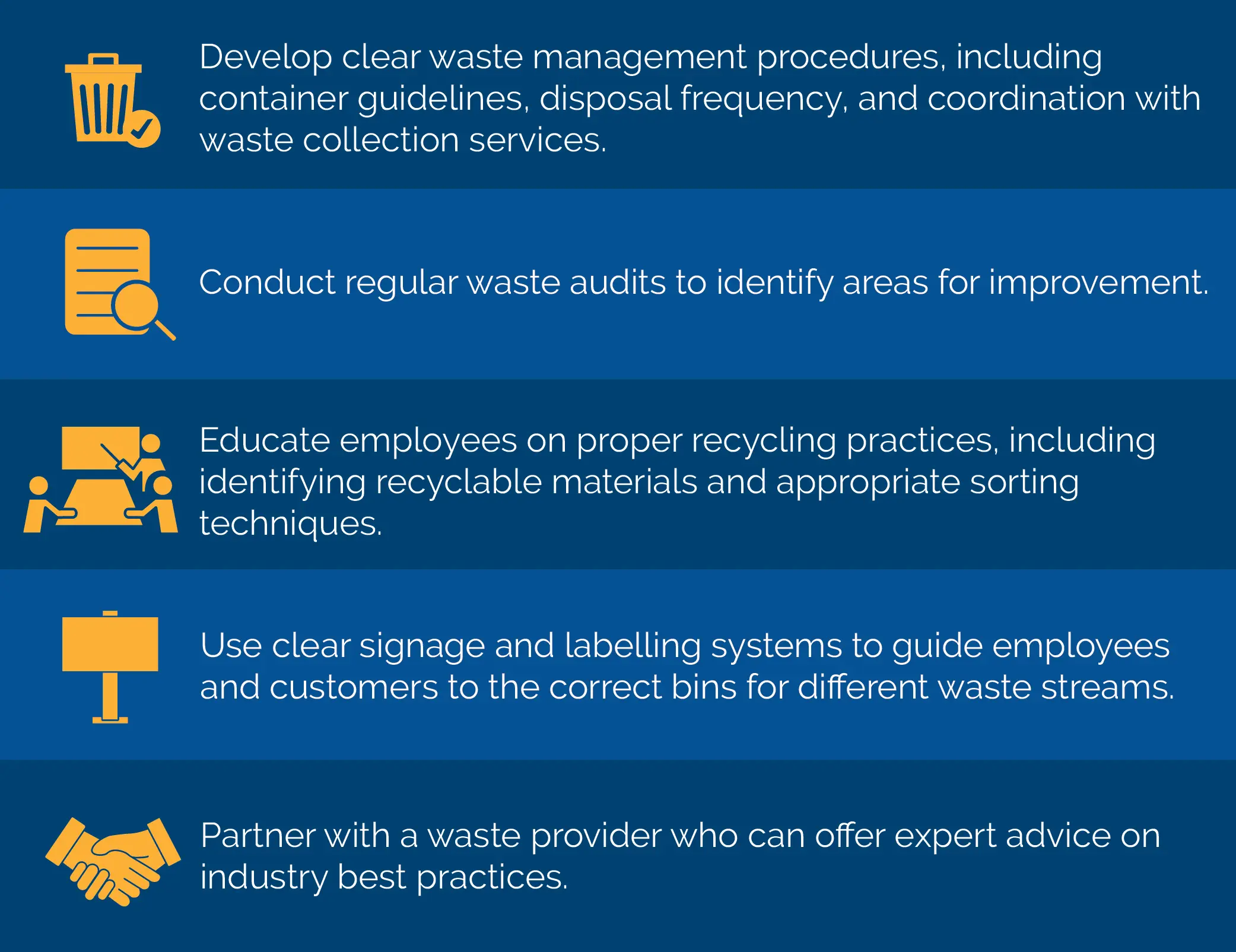Now is the perfect time to ensure your business is fully compliant with the upcoming Simpler Recycling legislation.
On 21 October, 2023, the Government announced new recycling legislation called ‘Simpler Recycling’ to reform the waste system in terms of collections and accepted materials. These changes aim to dispel any confusion regarding recyclable and non-recyclable materials and provide consistency in recycling practices for homes, workplaces, and schools across England.
Business owners should be aware of the following key points:
The ‘Simpler Recycling’ legislation requires businesses to adhere to stricter recycling practices to simplify recycling nationwide. Micro-firms (businesses with fewer than 10 full-time equivalent employees) will have additional time to update their practices, reflecting the flexibility in commercial collection contracts for non-household municipal premises.
There are upcoming deadlines that businesses need to meet:

By 31 March, 2025, non-household municipal premises (excluding micro-firms) must implement recycling practices for all recyclable waste streams, except garden waste and plastic film.

By 31 March, 2027, micro-firms (businesses with fewer than 10 full-time equivalent employees) must recycle all recyclable waste streams, except garden waste. Additionally, the collection of plastic film from all properties will begin.
To ensure compliance, businesses will continue to have the option to mix dry recyclables. However, it is important to note that disposing of food waste in the general waste bin will now be strictly prohibited and businesses will need to have separate food waste collections in place, regardless of the amount of food produced.

It is crucial to partner with a reliable waste management company like Grundon Waste Management. Grundon specialises in providing comprehensive waste disposal services that prioritise sustainability and adhere to these strict guidelines.
To ensure compliance with the recycling requirements, businesses can take certain steps:

Businesses should follow general guidelines and regulations:

Adhere to the Waste Hierarchy, which prioritises waste management to minimise environmental impact and promote sustainability.

Segregate recyclable waste from other types of waste, such as separating dry recyclables and food waste separately for collection.

Safely store hazardous waste and clearly label containers with the waste type.
Micro-firms have until March 31, 2027, to comply with the new requirements. During this phase, they can access business support tools to help with the transition and ensure compliance in a cost-efficient manner.

The impact on the cost of waste disposal may vary depending on factors such as business size and waste management practices. It may require additional investments in equipment or infrastructure specific to recyclable materials, such as food waste bins or dry-recyclable containers. However, this reform aims to improve recycling rates and enhance waste management Therefore, efficient recycling practices can lead to cost savings in the long run by reducing waste output and disposal costs.

For resources and guidance, businesses should refer to the official government website, as well as consult with relevant authorities and waste management providers. Staying updated on any further changes or updates to the regulations is also recommended.

The new ‘Simpler Recycling’ legislation aims to establish consistent recycling practices throughout the country. All businesses, regardless of size, must comply with the new regulations and implement proper recycling practices to meet the deadlines.
